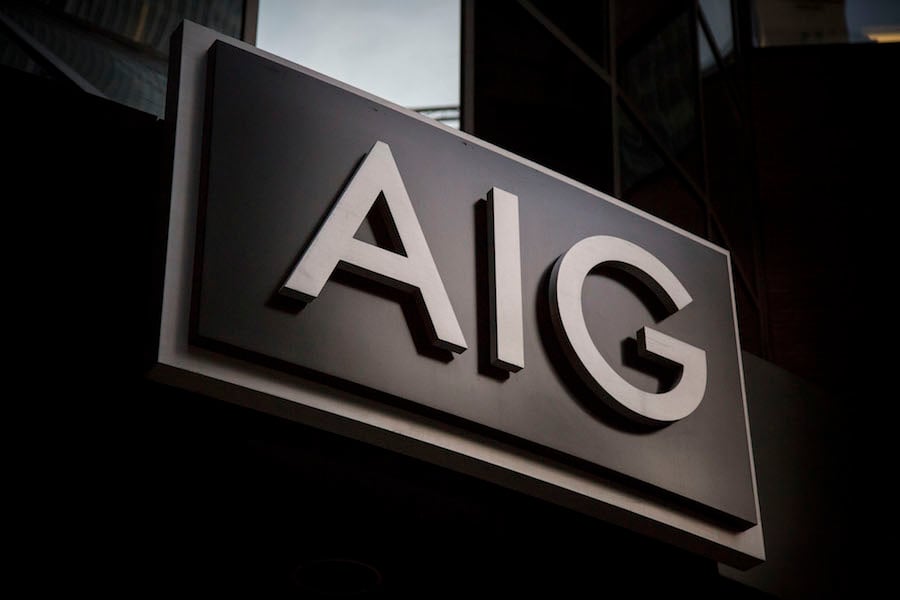American International Group on Tuesday announced the sale of AIG Advisor Group, one of the largest networks of independent broker-dealers in the country, to private-equity firm Lightyear Capital and Canadian pension manager PSP Investments.
Erica McGinnis will continue as chief executive officer of Advisor Group. Valerie Brown, former chief executive officer of Cetera Financial Group, will join Advisor Group full-time as executive chairman of the board.
“It's a business we are not the best owner of, in light of potential Department of Labor rules,” Peter Hancock, chief executive of AIG, said during an investor presentation Tuesday morning.
Terms of the deal were not disclosed. The deal is expected to close in the second quarter this year, subject to regulatory approval.
AIG Advisor Group is made up of four firms — AIG Advisor Group are: FSC Securities Corp., Royal Alliance Associates Inc., SagePoint Financial Inc. and Woodbury Financial Services — which house close to 5,000 registered representatives and financial advisers.
The sale was part of a broader restructuring announcement meant to create “a leaner, more profitable and focused insurer,” according to an AIG shareholder presentation.
NEW LEADERSHIP
InvestmentNews
reported in November that AIG was shopping around its broker-dealer network. Lightyear Capital
had been one of the rumored firms in the discussions.
The insurer had been close to inking a deal with Lightyear Capital for AIG Advisor Group in the summer of 2009, before incoming AIG chief executive Robert Benmosche
pulled the plug during final negotiations.
Now, under new leadership, it seems AIG is looking to consolidate its core business and divest anything it sees as ancillary, industry watchers say. Mr. Benmosche left the firm in 2014, and died last year.
Donald Marron, Lightyear Capital's chairman and founder, decided to purchase the broker-dealer network of Dutch insurer ING instead, which was renamed Cetera Financial Group, and ultimately sold to RCS Capital Corp. in 2014 for $1.15 billion.
DOL RULE
A pending Labor Department rule that would put more stringent standards in place for brokers handling retirement accounts was a big driver in weighing a sale of AIG Advisor Group, Mr. Hancock said. Independent B-Ds believe the fiduciary rule, likely to be released in the spring,
will lead to high costs and compliance complexities.
AIG Advisor Group had most recently seen around $40 million in earnings, and the business consumed a “disproportionate amount” of compliance costs, according to Mr. Hancock. Selling the B-D network “greatly simplifies our governance,” he added.
Other actions AIG is taking relative to the broader company include returning at least an additional $25 billion to shareholders over next two years, building on the $12 billion returned in 2015. Also, AIG will pursue an “active divestiture program,” of which AIG Advisor Group is a part, but which also includes the 19.9% initial public offering of United Guaranty Corp. in mid-2016 as a step toward full separation.
SIFI DESIGNATION
AIG is one of four entities labeled by U.S. regulators as non-bank systemically important financial institutions in the wake of the financial crisis. The others are MetLife, Prudential Financial and GE Capital. A SIFI label carries particular regulatory pressures, such as stricter limits on companies' balance sheets due to stringent capital requirements.
These pressures contributed to MetLife's
mid-January announcement that it plans to divest a large part of its U.S. retail business, either through a sale, initial public offering or spin-off. General Electric announced in April its intent to break up GE Capital, a financial division, due to the SIFI label.
Investors such as billionaire Carl Icahn, one of AIG's largest shareholders, had been turning up the heat on AIG to
take a similar route and shrink the company, splitting into three companies focused on life insurance, property-casualty coverage and mortgage guaranties, respectively.
The argument boils down to the more efficient use of capital on hand, according to Alan Morley, regulatory compliance and surveillance practice lead at financial services consultancy GFT. Being a non-SIFI could free up capital to invest in other areas of AIG's business or perhaps deliver higher dividend payments to shareholders, he said.
Mr. Hancock said he doesn't see a “short-term imperative' to divest large parts of the firm, rebuffing Mr. Icahn's push for AIG to shed SIFI status.
“There are important tax and diversification reasons that would preclude major divestitures in the short term,” he said, adding that management would consider an exit route from SIFI in the future if the situation changes.







